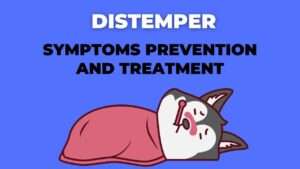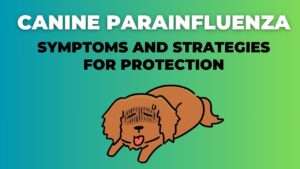Allergies are not limited to humans; our furry companions can also suffer from them. If you’ve noticed your dog scratching incessantly, suffering from red, irritated skin, or experiencing other allergy symptoms, you may have considered allergy shots, also known as immunotherapy. But what exactly are allergy shots for dogs, how do they work, and are they the right choice for your pet? Let’s delve into the world of allergy shots for dogs in this complete guide.
Contents Overview
What are Allergy Shots for Dogs?
Allergy shots, or immunotherapy, for dogs involve injecting small amounts of allergens into your pup’s body to help build up their immune system’s tolerance to those allergens over time. These shots are typically customized based on the specific allergies your dog has been diagnosed with through allergy testing.
The purpose of allergy shots is to help a dog’s immune system gradually build up a tolerance to the allergen, reducing or eliminating allergy symptoms over time.
How Do Allergy Shots Work?
Allergy shots, also known as immunotherapy, work by gradually desensitizing your dog’s immune system to specific allergens that trigger allergic reactions. This process involves several key steps and mechanisms:
- Identification of Allergens:Before beginning allergy shots, your veterinarian will conduct allergy testing to identify the specific substances (allergens) that your dog is allergic to. These allergens can include pollen, dust mites, mold spores, certain foods, or other environmental triggers.
- Customized Serum:Once the allergens have been identified, a customized serum is created for your dog. This serum contains small, precise amounts of the allergens that trigger your dog’s allergic reactions.
- Injection Schedule:Your dog will receive regular injections of the customized serum under the supervision of a veterinarian. The injection schedule typically involves two phases:
- Build-Up Phase: During this initial phase, your dog will receive injections more frequently, often one to two times per week. The dose of allergens in the injections starts out very low and gradually increases with each shot.
- Maintenance Phase: After reaching a target dose, your dog will transition to the maintenance phase, where injections are given less frequently, typically every two to four weeks. This phase helps maintain the immune system’s tolerance to the allergens.
- Immunological Mechanisms:Allergy shots work by leveraging the body’s immune response mechanisms to gradually build tolerance to specific allergens. Here’s how it happens:
- Exposure to Allergens: When your dog receives allergy shots, their immune system is exposed to small amounts of the allergens that trigger their allergic reactions.
- Immune System Response: Initially, the immune system may react to the allergens in the serum, causing mild inflammation or allergic symptoms. However, over time, the immune system begins to recognize these allergens as harmless.
- Tolerance Development: As the injections continue, the immune system’s response changes. It shifts from producing allergic reactions to producing immune cells (such as T regulatory cells) that suppress allergic responses.
- Long-Term Tolerance: With continued exposure to the allergens through allergy shots, the immune system becomes desensitized. This desensitization leads to long-term tolerance, reducing or eliminating allergic reactions when your dog is exposed to the allergens in their environment.
- Monitoring and Adjustment:Throughout the course of allergy immunotherapy, your veterinarian will monitor your dog’s progress and adjust the injection schedule and allergen doses as needed. Regular check-ups and communication with your vet are essential to ensure the effectiveness and safety of the treatment.
Pros of Allergy Shots for Dogs
Allergy shots, also known as immunotherapy, offer several benefits for dogs suffering from allergies. Understanding these advantages can help pet owners make informed decisions about their dog’s healthcare. Here are the key pros of allergy shots for dogs:
- Addressing the Root Cause:Allergy shots target the underlying cause of your dog’s allergic reactions rather than just masking the symptoms. By desensitizing the immune system to specific allergens, immunotherapy aims to provide long-term relief from allergic symptoms.
- Long-Term Solution:Unlike some medications that provide temporary relief, allergy shots offer a long-term solution for managing allergies in dogs. With continued treatment, many dogs experience a significant reduction in the severity and frequency of allergic reactions, even after completing the course of immunotherapy.
- Reduced Dependence on Medications:Dogs with severe allergies often require medications such as antihistamines, steroids, or other allergy medications to manage their symptoms. One of the advantages of allergy shots is that they can decrease the need for these medications over time. As the immune system becomes desensitized to allergens, your dog may require fewer medications to control their allergy symptoms.
- Customized Treatment:Allergy shots are tailored to each dog’s specific allergens. Before starting immunotherapy, your veterinarian will conduct allergy testing to identify the substances that trigger your dog’s allergic reactions. The customized serum used in allergy shots contains small amounts of these allergens, allowing for targeted treatment.
- Potential Prevention of Secondary Complications:Allergies in dogs can lead to secondary complications such as skin infections, ear infections, and hot spots. By effectively managing your dog’s allergies with allergy shots, you may also reduce the risk of these secondary complications, improving your dog’s overall health and well-being.
- Improvement in Quality of Life:Allergies can significantly impact a dog’s quality of life, causing discomfort, itching, skin irritation, and other unpleasant symptoms. By reducing or eliminating allergic reactions, allergy shots can improve your dog’s quality of life, allowing them to enjoy activities without the constant discomfort of allergies.
- Potential Cost Savings in the Long Run:While the initial investment and ongoing cost of allergy shots can be significant, the long-term benefits may outweigh the expenses associated with managing allergies through medications and symptomatic treatment. Fewer vet visits, medications, and treatments for secondary complications can lead to cost savings over time.
Cons of Allergy Shots for Dogs
While allergy shots for dogs offer numerous benefits, it’s essential to consider the potential drawbacks and challenges associated with this treatment option. Here are some cons of allergy shots for dogs:
- Time and Commitment:Allergy shots require a significant time commitment from pet owners. During the initial build-up phase of treatment, dogs typically need to receive injections one to two times per week, which means frequent visits to the veterinarian. Even during the maintenance phase, injections are given every few weeks, necessitating ongoing dedication to the treatment schedule.
- Cost:Allergy shots can be expensive, both in terms of the initial investment and ongoing maintenance. The cost of allergy testing, the creation of customized serum, and the administration of injections can add up over time. Pet owners should consider the financial implications of long-term allergy shot treatment.
- Risk of Reactions:While rare, there is a risk of allergic reactions to the allergy shots themselves. Some dogs may experience mild reactions, such as localized swelling or itching at the injection site, while others may have more severe allergic responses. It’s essential to monitor your dog closely after each injection and report any adverse reactions to your veterinarian immediately.
- Limited Availability:Allergy shots may not be readily available at all veterinary clinics. Not all veterinarians offer immunotherapy services, and some geographic areas may have limited access to this treatment option. Pet owners may need to travel to specialized veterinary clinics or allergists to receive allergy shots for their dogs, which can be inconvenient for some.
- Uncertain Outcome:While many dogs experience significant improvement in their allergy symptoms with allergy shots, the effectiveness of this treatment can vary from dog to dog. Some dogs may respond well to immunotherapy and achieve long-term relief, while others may not experience significant improvement. It can be challenging to predict the outcome of allergy shots for each individual dog.
- Need for Regular Monitoring:Throughout the course of allergy shot treatment, dogs require regular monitoring by a veterinarian to assess their progress and adjust the treatment plan as needed. This may involve additional veterinary visits and monitoring tests, adding to the overall time and cost of treatment.
Is Allergy Immunotherapy Right for Your Dog?
Deciding whether allergy immunotherapy, also known as allergy shots, is the right treatment option for your dog requires careful consideration of various factors. Here’s a detailed exploration to help you determine if allergy immunotherapy is suitable for your furry friend:
- Severity of Allergies:Allergy shots are most beneficial for dogs with severe allergies that significantly impact their quality of life. If your dog experiences intense itching, skin irritation, recurrent ear infections, or other severe allergy symptoms that cannot be effectively managed with medications alone, immunotherapy may be worth considering.
- Specific Allergens:Allergy shots are most effective when targeting specific allergens that have been identified through allergy testing. If your dog has been diagnosed with allergies to common environmental triggers such as pollen, dust mites, or certain foods, immunotherapy can help desensitize their immune system to these allergens over time.
- Commitment to Treatment:Allergy shots require a significant commitment from pet owners in terms of time, finances, and effort. Pet owners must be willing to adhere to the treatment schedule, which involves regular visits to the veterinarian for injections during the build-up and maintenance phases of treatment. Consider whether you have the time and resources to commit to the long-term management of your dog’s allergies through immunotherapy.
- Cost Considerations:Allergy shots can be expensive, both in terms of the initial allergy testing and the ongoing administration of injections. Pet owners should assess their budget and weigh the cost of immunotherapy against the potential benefits for their dog’s quality of life. While the upfront investment may be significant, allergy shots may lead to long-term cost savings by reducing the need for medications and treatments for secondary complications.
- Impact on Quality of Life:Consider how your dog’s allergies affect their overall quality of life. If your dog’s allergy symptoms significantly impair their ability to enjoy daily activities, such as playing, exercising, or interacting with family members, allergy immunotherapy may offer a chance to improve their well-being and comfort.
- Consultation with Veterinarian:Ultimately, the decision to pursue allergy immunotherapy for your dog should be made in consultation with your veterinarian. Your vet can provide valuable insights into your dog’s specific allergy diagnosis, the potential benefits and risks of immunotherapy, and alternative treatment options. They can also help you develop a personalized treatment plan tailored to your dog’s needs.
Bottom Line
Allergy shots for dogs can be a game-changer for pets suffering from severe allergies. By desensitizing the immune system to specific allergens, these shots offer long-term relief and reduce the need for medications. However, they require commitment, both in terms of time and finances. Consult with your vet to determine whether allergy immunotherapy is the right choice for your furry friend’s allergies, and pave the way for a happier, itch-free life.


































+ There are no comments
Add yours